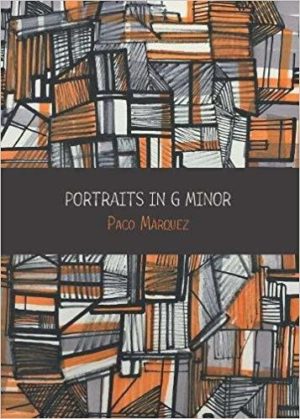In Their Own Words
Paco Márquez on “Cool Breeze”

Cool Breeze
I say, that which spoke the rose into being
is here with me now.
You say, cut the bull.
I say, there have always been two Gods,
the artificial one, a psychological feature
and the natural one of typhoons and stars.
You say, Snoopy probably ponders that
when he lays on top of his dog house.
I; there is no future, no past, no present,
human decay is the unknown eating
ripe bodies. And meditative, brilliant
alertness is the sky snuggling on muddy soil,
green balloons lifting rusted train wheels,
rays of slow light children eaten…
You hold my hand, look me in the eyes &
say; the kitchen window is open
and don't forget we're meeting Liz for dinner tonight.
From Portraits in G Minor (Folded Word, 2017). All rights reserved. Reprinted with the permission of the author.
On "Cool Breeze"
The first draft of this poem came at a good time for me. My second year at NYU's MFA was about to start. I had wanted for decades to move to New York City. The chronic pain I had been living with for two years had finally subsided. Summer wind was blowing through our railroad apartment. I sat alone in the kitchen while my wife was at work. The first two lines are a close steal from Rumi (more or less); I was feeling it. But almost immediately it seemed like an exaggeration. I heard a conflict; I imagined what my wife might say; I wrote the third line, and the form of the poem took shape in the dialogue. Then I wanted more of that initial voice.
I feel these are two poems fitted into each other to form one. The two registers of language (meditative versus colloquial), accentuate the other–both voices are valid. In stanza three I pushed the poem philosophically and grammatically in part to highlight the beauty of the clear and mundane language of the last stanza. There is a movement towards love in this last stanza: the reaching for the hand; the "I" voice listening and acknowledging. Just as the two language registers need each other grammatically in a play of comparison and contrast, so do the speakers.



